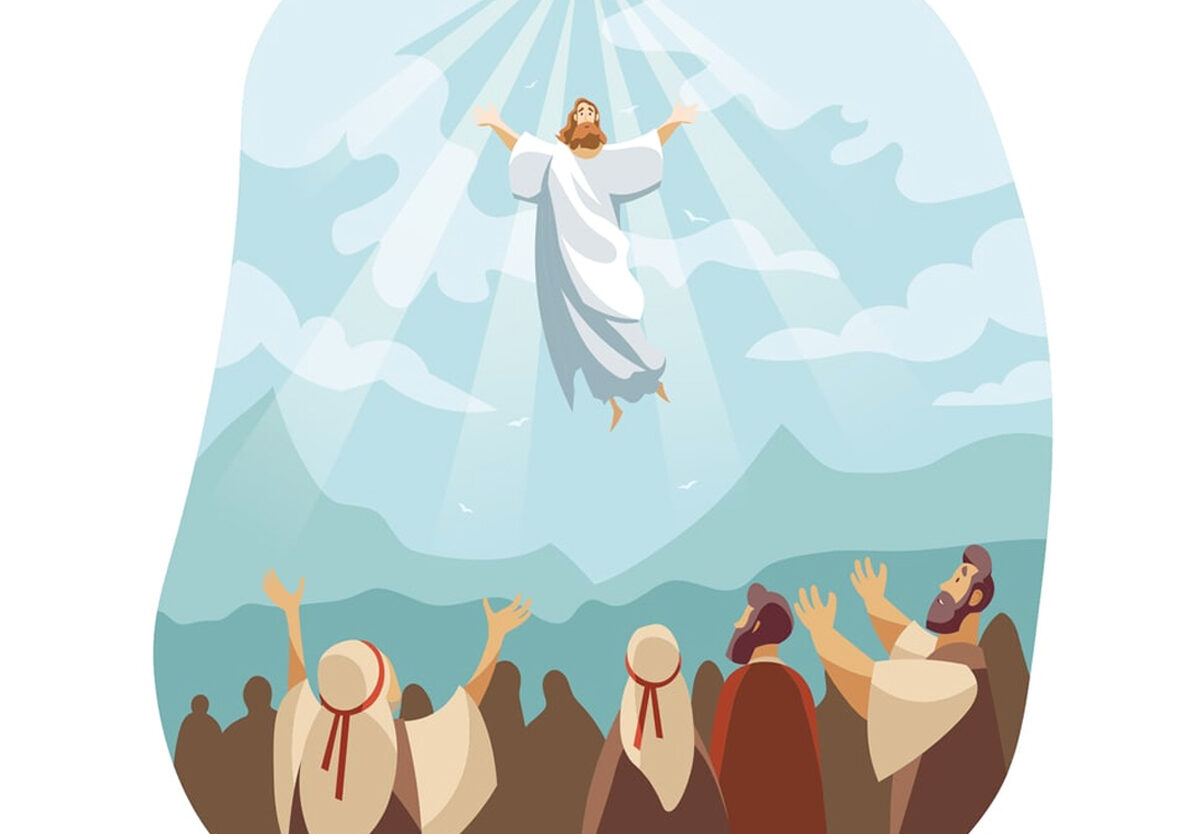We commemorate Jesus Christ’s ascension into heaven (as per Christian belief) by celebrating Ascension Day, which occurs on the Thursday, which is 40 (or 39) days after Easter. This year, it will take place on May 14. Known by multiple names — The Feast of the Ascension, The Ascension of Jesus, Ascension Thursday, Holy Thursday, or Solemnity of the Ascension of the Lord — this is a Christian holiday that doubles as a public holiday in many countries like Austria, Belgium, Denmark, Germany, France, and more.
History of Ascension Day
One of the earliest Christian festivals, Ascension Day marks the end of the Easter season. This event is celebrated primarily by Catholics and Anglican Christians; most Protestant churches do not follow this tradition anymore. The date, too, differs in different geographic locations. Western Churches prefer to use the Gregorian calendar for calculating this date, while many Eastern Orthodox Churches calculate this date according to the Julian calendar. As a result, their celebrations occur at a later date than the Western event.
As per the New Testament in the Bible, after Jesus Christ’s crucifixion on Good Friday, he was resurrected from the dead in three days, on the day we know as Easter Sunday. For 40 days after this, he stayed with his Apostles (the primary disciples of Christ) to instruct them on how to carry out his teachings. As the Bible says, at the end of day 40, Jesus Christ and his disciples went to Mount Olivet (or the Mount of Olives), near Jerusalem. After asking them to stay, Christ then ascended to heaven to take his seat at the right hand of God, under the gaze of his disciples. To Christians, the ascension signifies that Christ completed his work on Earth and allowed him to prepare a place for his followers in heaven.
Initially a part of Easter celebrations, this day was later separated from Easter, along with Pentecost. Celebration of Pentecost ends the cycle of Easter-related events in the Christian calendar.
Ascension Day timeline
Ascension Day begins to be observed, albeit with two other holidays — Easter Sunday and Pentecost.
A decree declares this celebration now must be observed separately — it is moved to 40 days after Easter.
We see the very first piece of written evidence that the Ascension Day Feast is celebrated.
Christian art showcases this holiday.
Syria develops a different version of the Ascension, which is later adopted by Byzantine art.
Ascension Day coincides with Father's Day in Germany — they celebrate Jesus returning to the Holy Father.
To replicate the way the Apostles walked with Jesus, Christians begin to host colorful parades as a commemoration.
Ascension Day FAQs
Which countries observe Ascension Day?
Ascension Day is observed by Catholics around the world. It is a public holiday in France, Germany, Austria, Belgium, Finland, Indonesia, Luxembourg, the Netherlands, Norway, Sweden, and Vanuatu. This day is not a public holiday in the U.K., Canada, U.S., or Australia.
Why is Ascension 40 days after Easter?
The Bible says Jesus Christ met with his disciples for 40 days before his Ascension to teach them how to carry on his teachings.
What does Ascension Day mean?
As per Christian belief, Ascension Day marks day 40 after Jesus Christ’s Resurrection — counting Easter Day as day one — and is the day Christ ascended into heaven. This day is very important for Christians, ranking right up there with other Christian festivals like Christmas, Easter, and Pentecost.
How To Observe Ascension Day
Go to church
Learn how your local church celebrates this day. Take some time to attend a Mass or Christian church service. Clarify the details before you go, as these services differ based on whether the church is Protestant or Catholic.
Attend church processions
Tradition says this holiday is observed by a three-day procession, then the feast itself, which includes a procession of torches and banners to symbolize Christ’s journey to the Mount of Olives and entry into heaven. While your local church might not have such grand festivities, find out if they are still carrying out a procession.
Listen to hymns
Listening to hymns is a traditional part of Ascension Day celebrations. A medley of these religious songs can have you humming along for days. Even popular artists have been known to hum a hymn or two over the years. Check out Carrie Underwood’s ‘Something In The Water,’ or U2’s ‘Where The Streets Have No Name,’ or even John Legend’s ‘Preach.’
Facts About Ascension Day
In Sweden, people go on early morning walks
Many people go out into the woods at 3 AM or 4 AM to hear the birds at sunrise, believing that hearing a cuckoo from the east or west brings them good luck — this activity is called ‘gökotta.’
The British celebrated by 'beating the willow'
In the olden days, as young boys were driven along the parish boundaries, they were beaten with willow branches to drive away evil.
Welsh people don’t work on this day
It is more than a holiday celebration in Wales — Welsh people believe that it is unlucky to do any work on Ascension Day.
Portugal celebrates by keeping wheat in their houses
Traditionally, rural Portuguese households keep wheat in their homes throughout the coming year — this day is associated with peace and prosperity and, to them, wheat symbolizes prosperity.
Indonesia has a public holiday on Ascension Day
Despite Christianity being a minor religion in Indonesia, Ascension Day is designated as a public holiday.
Why Ascension Day Is Important
It is an opportunity for reflection and to gain inner peace
Instances, where we can simply sit, reflect, and learn the true meaning of peace, are rare in our busy worlds. This is why we recommend holding onto such chances with both hands. Ascension Day church services center around this theme. If you are not a religious or church person, simply take a moment to sit by yourself and reflect on your journey so far and how you would like to continue. There’s no better way to celebrate this day than by centering yourself and your thoughts.
We learn about Christian traditions
Expanding our knowledge is good for us. Plus, learning about Ascension Day not only helps us expand our store of general knowledge, but also inspires us to observe some of the traditions.
It helps us expand our cultural horizons
Such traditions have been prevalent for a long time, and have taken on varying degrees of importance around the world. Even festivities change as per the customs of a certain region. Learning more about these traditions changes our views of cultures and gives us extended knowledge of people from other nations.
Ascension Day dates
| Year | Date | Day |
|---|---|---|
| 2024 | May 9 | Thursday |
| 2025 | May 29 | Thursday |
| 2026 | May 14 | Thursday |
























